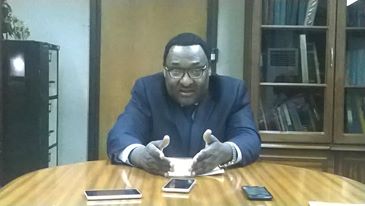The Executive Secretary of the Nigerian Shippers’ Council (NSC), Barr. Hassan Bello has blamed the pulling out of the Memorandum of Understanding (MoU) signed with the Nigerian government by a shipping giant, PIL on adverse business environment which discourages healthy competition with the foreign vessel owners who benefits a lot of incentives from their home governments to remain afloat.
Bello who was speaking at an event in Lagos recently recalled that the Nigerian government and PIL had signed an MoU to finance the re-establishment of the national carrier using the 60:40 sharing formula but regretted that PIL had to withdraw from the MoU having taken a critical look at the Nigerian atmosphere and found out that it may not be wise at that material time to invest in such venture.
He added that it was not viable for PIL to invest in the project at that time because the proposed national carrier cannot compete when it had to pay 5% NIMASA fee, pay duty on the ship, granted no tax holidays, had no berthing priorities and when there were so many disadvantages since they were going to compete with other foreigners who have more advantages than the national fleet the country was trying to establish.
“So, that’s why the National Fleet Implementation Committee is looking at all this because it happens. It happened in Malaysia where they protect their shipping industry, it happened in even the more advanced countries, in all places, shipping occupies a very important and unique position. That’s why even the anti-trust laws of America have given shipping a wide bar so that it may not be involved in these anti-trust or monopolistic issues.
“Lack of capacity to compete with the privately owned shipping company and this is because of the usual mentality, the usual may be sabotage. Government must have a hands-on approach to shipping. Shipping must be a top priority for the government, let it suspend all these ‘what these people will tell us to do and they are not doing it themselves’. Everybody has an interest to protect; Nigeria must identify her interest and make efforts to protect it”, he said.
Speaking on other challenges of shipping in Nigeria, Bello who is also the Chairman, National Fleet Implementation Committee said,” The trade policies, customs duties for vessel importation are considered by business community as prohibitive, that is at the tune of 14% of the total cost of the vessel, the customs must say pay duty when we are indigenous and we are not going to pay because this is our country. While you allow the foreigners to come without that, who is competing? You are already handicapped.
“Our Registry also needs to be clean up and that is one the effort I told you, NIMASA is looking at its Registry now. It is a fundamental reform NIMASA is doing. We have not been able to reap the immense economic potential of being a littoral state because a major challenge has been that the Nigerian exports are done Free on Board while imports are shipped on Cost, Insurance and Freight. The sum of nine billion was paid as freight for dry and weight cargoes to foreign ship owners by Nigeria in 2015 alone and so, we have this statistics which we run just to see what we are losing annually.
“There is no valid regulation to guide the conduct of education, training, examination and certification of inland waterways and none convention ships. International conventions on Standards of Training, Certification, Watch-Keeping for seafarers provides for protection against cases of fraudulent certificates worldwide by instituting certificate registration and database accessible on global integrated shipping information but in Nigeria, we only provide contact address for verification. A lot to be done and I am happy that NIMASA is hearing towards all that.
“The Nigerian Seafarers Development Programme also has some limitations but I think all this things are being reviewed but our nautical colleges, the one in Oron, for example is also receiving a lot of attention to make sure that these certificates are in accordance with world acceptability”.
Send your news, press releases/articles to augustinenwadinamuo@yahoo.com. Also, follow us on Twitter @ptreporters and on Facebook on facebook.com/primetimereporters or call the editor on 07030661526, 08053908817.

